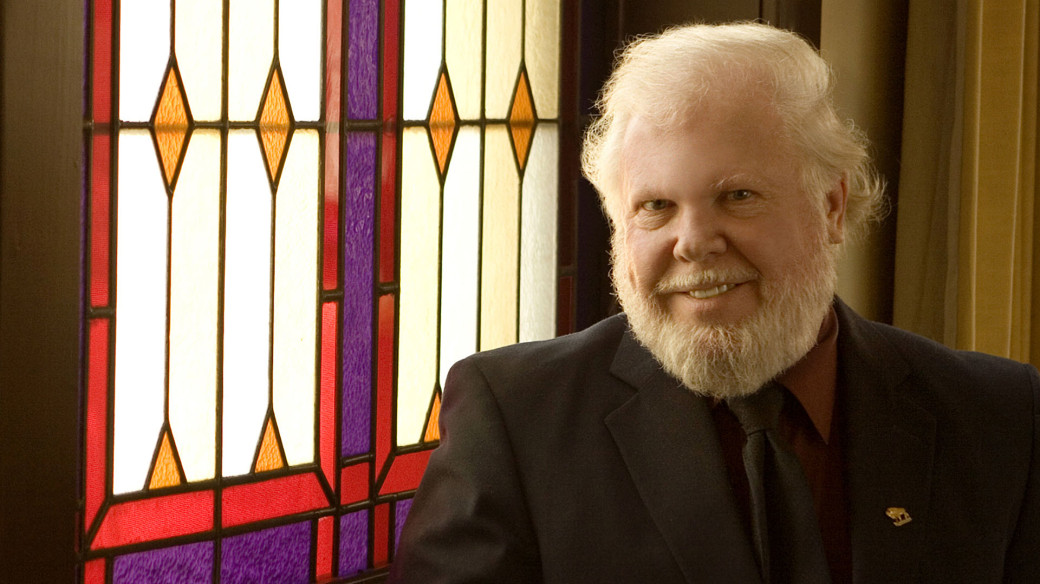
"A culture that’s lost its history is like a person who has lost their memory. History is us."
David Leonard is an insightful historian and dedicated archivist who has played a key role in the preservation and understanding of Alberta’s history. He has been particularly effective in preserving the history of Alberta’s northwest Peace River Country.
David was born in Fairview, Alberta on February 17, 1945 and raised in Sexsmith. His father and mother, Bill and Grace, came to the Peace Country from Iowa in the early 1930s and resided in Hines Creek, Webster and Whitelaw. After serving in the Second World War, Bill took land under the Veterans Lands Act and chose two quarter sections at Teepee Creek, east of Sexsmith. The couple made their home in Sexsmith and raised three children, Donna (Menzies), Ann (Leighton), and David.
The love of Alberta’s north that would come to shape David’s career didn’t manifest itself in his early years. He was a strong student who was active in the community, joining Air Cadets and playing baseball for the local team. He also served as a community reporter for the Grande Prairie Herald-Tribune. However, after high school, David was anxious to venture beyond the Peace Country and explore other places.
He moved to Edmonton in 1964 to attend the University of Alberta where he discovered a passion for history and a particular interest in Britain and Ireland. David obtained a Bachelor of Arts Honours degree in 1968 and then a Master of Arts degree in Modern Irish History in 1969. After two years as an archivist at the Provincial Archives of Alberta, David moved to England to begin PhD studies in Modern Irish History at the University of Sheffield. He received his doctorate in 1975.
Shortly after returning to Canada, David became the Assistant City of Edmonton Archivist, a position he held until December 1978, when he became the first Territorial Archivist of the Northwest Territories, stationed in Yellowknife. In February 1981, he returned to Edmonton to assume the position of Head of the Government Records program at the Provincial Archives.
During the 1980s, David became an active member of the Society for the Protection of Architectural Resources in Edmonton and spent many years as a volunteer, offering walking tours of historic districts of the city and working to educate building owners and others about the value of preservation. He also began volunteering with the Historical Society of Alberta, the Alberta Records Publication Board and the Archives Society of Alberta.
The 1980s marked the beginning of David’s interest in the history of northwest Alberta. While working at the Provincial Archives, he came across a general land distribution map of Canada and was struck by an anomaly in the Peace Country. It was common to see population growth along railways but northwest Alberta broke with that trend, showing wide-scale settlement in the absence of a railway. David was fascinated and wondered what would compel people to pick up and move so far north. He began researching the region and joined with heritage groups in working to set up archives and protect historic sites.
In 1992, David published the first of several histories of the Peace River Country, The Lure of the Peace River Country, co-authored with Victoria Lemieux. In 1995, he followed with Delayed Frontier: the Peace River Country to 1909. As his volunteer work on the history of Alberta’s North continued, David took on increasingly senior positions with the Provincial Archives. He served as the Provincial Archivist from 1993 to 1996. He also began teaching archives and records management courses at the University of Alberta’s School of Library and Information Studies.
In 1996, David transferred from the Provincial Archives to the Alberta Historic Sites Service, where he assumed the role of Project Historian for Northern Alberta. His careful research of northwest Alberta history continued with the publication of numerous works. In 2006, David completed an important piece of the puzzle he first discovered looking at the land distribution map twenty years earlier. The Last Great West: The Agricultural Settlement of the Peace River Country to 1914 provides a window into the conditions and personal stories that brought settlers to the northwest. David’s work included the painstaking examination of 6,789 land files created by the Department of the Interior on each settler in the region. While some might find the task daunting, David found endless fascination in the personal histories the files revealed. The statistical data he compiled captures many stories that might otherwise be lost. The data has been digitized and made available to all through Grande Prairie Regional College.
When asked to list the skills necessary for a successful archivist and historian, David includes thorough, accurate work habits and an affection for the community being studied. By that, or any other definition, David Leonard is a consummate archivist. His knowledge of Alberta history is as solid as his passion for sharing it with others. His work has helped uncover and preserve the stories that make up Alberta history, from singular moments in the province’s development to pieces that capture elements of everyday life. He has helped us understand who we are as Albertans and helped us share our stories with the world.
